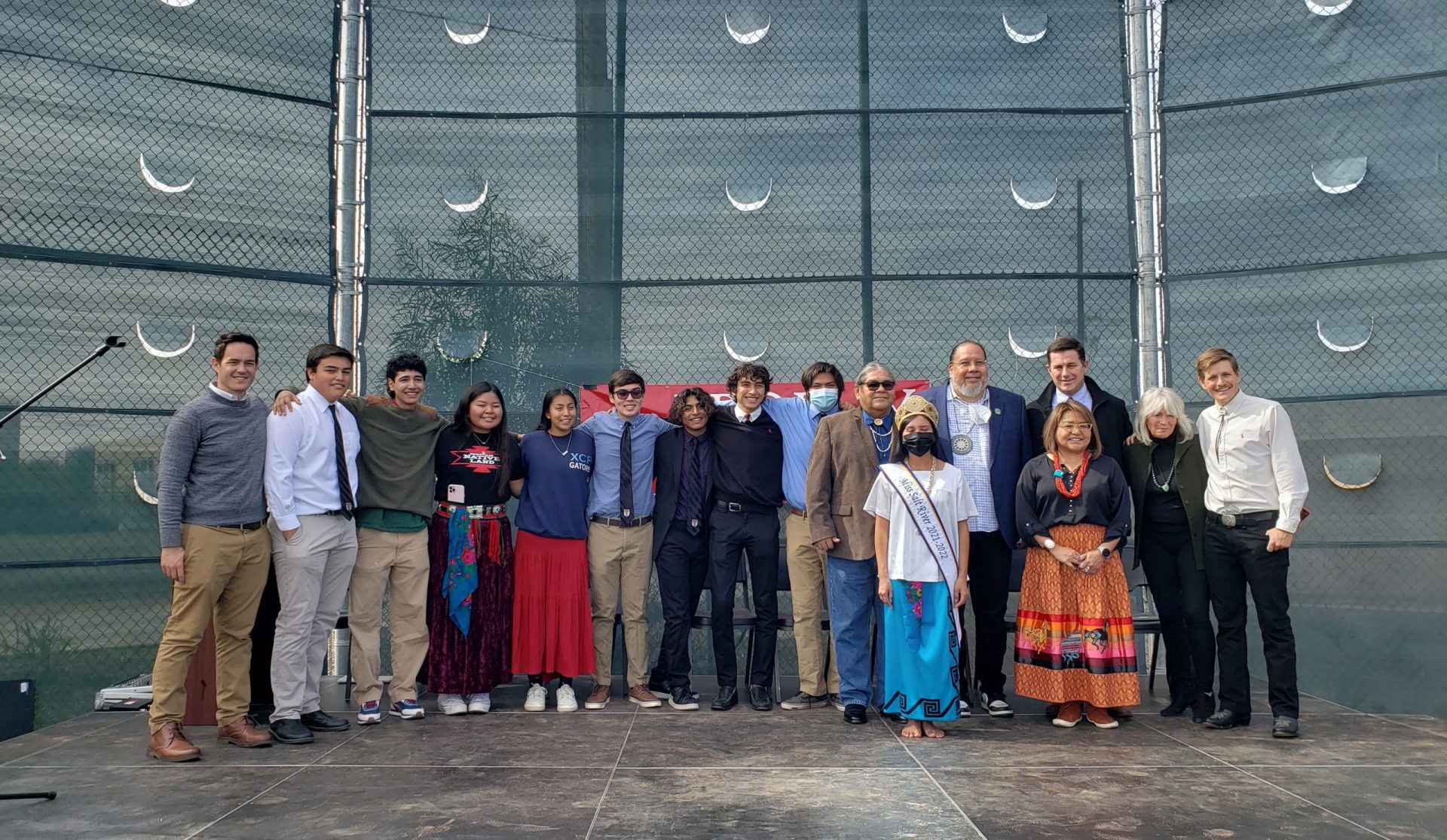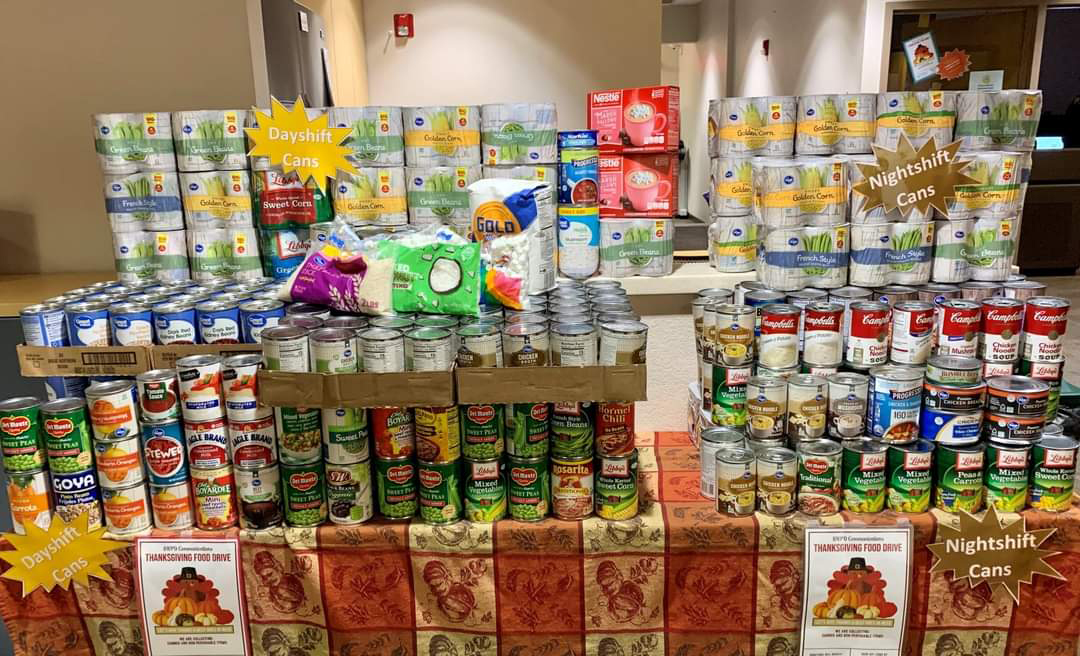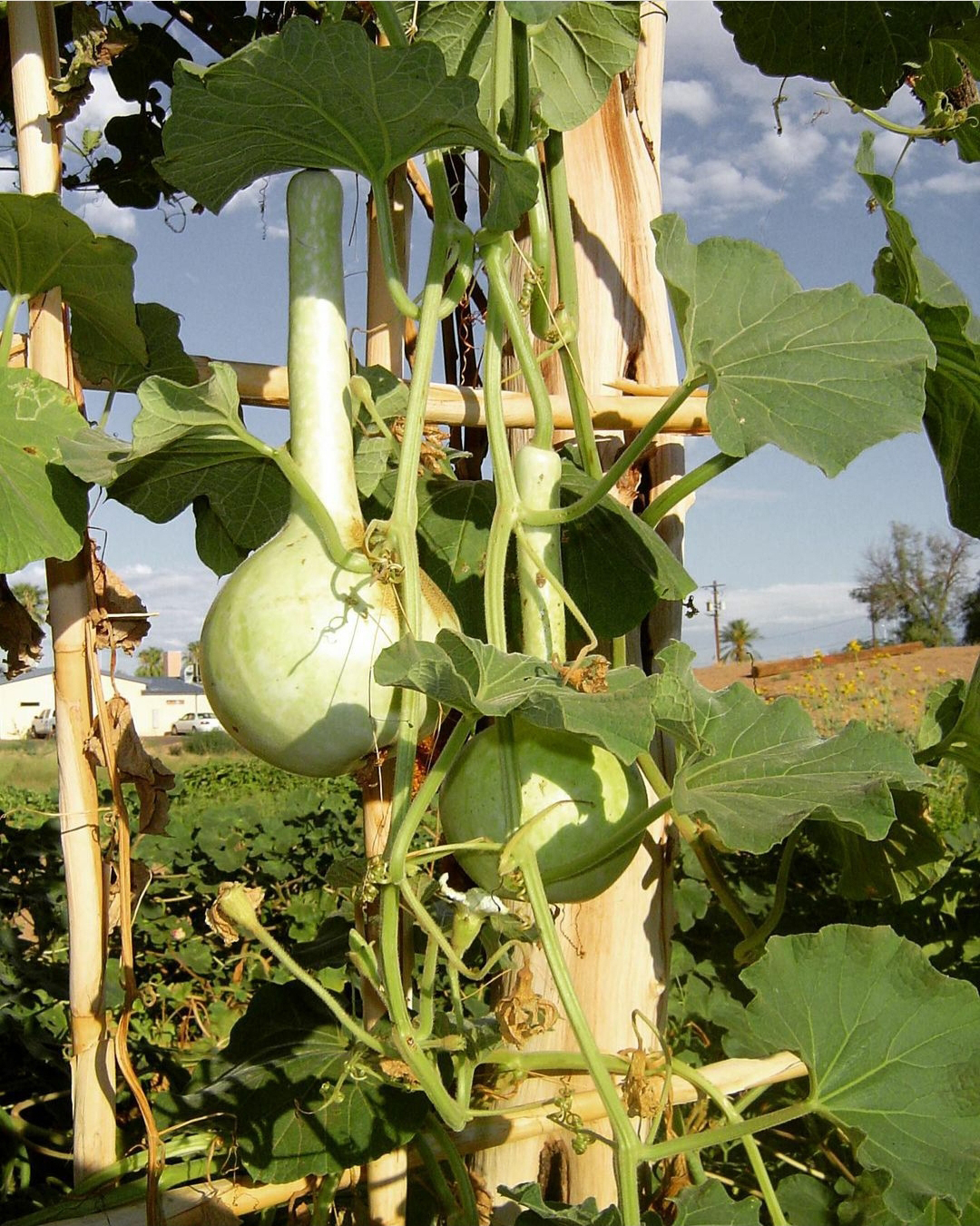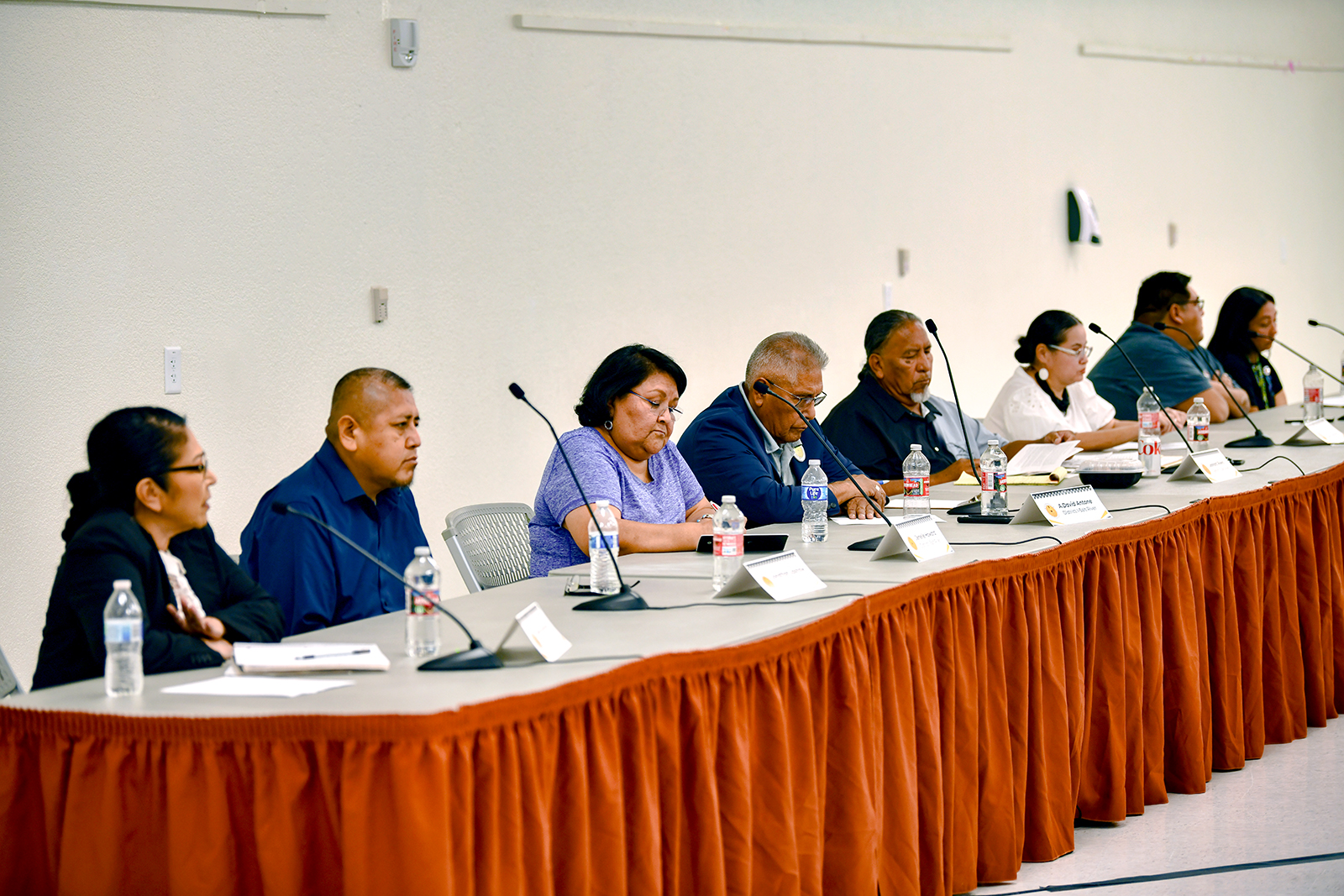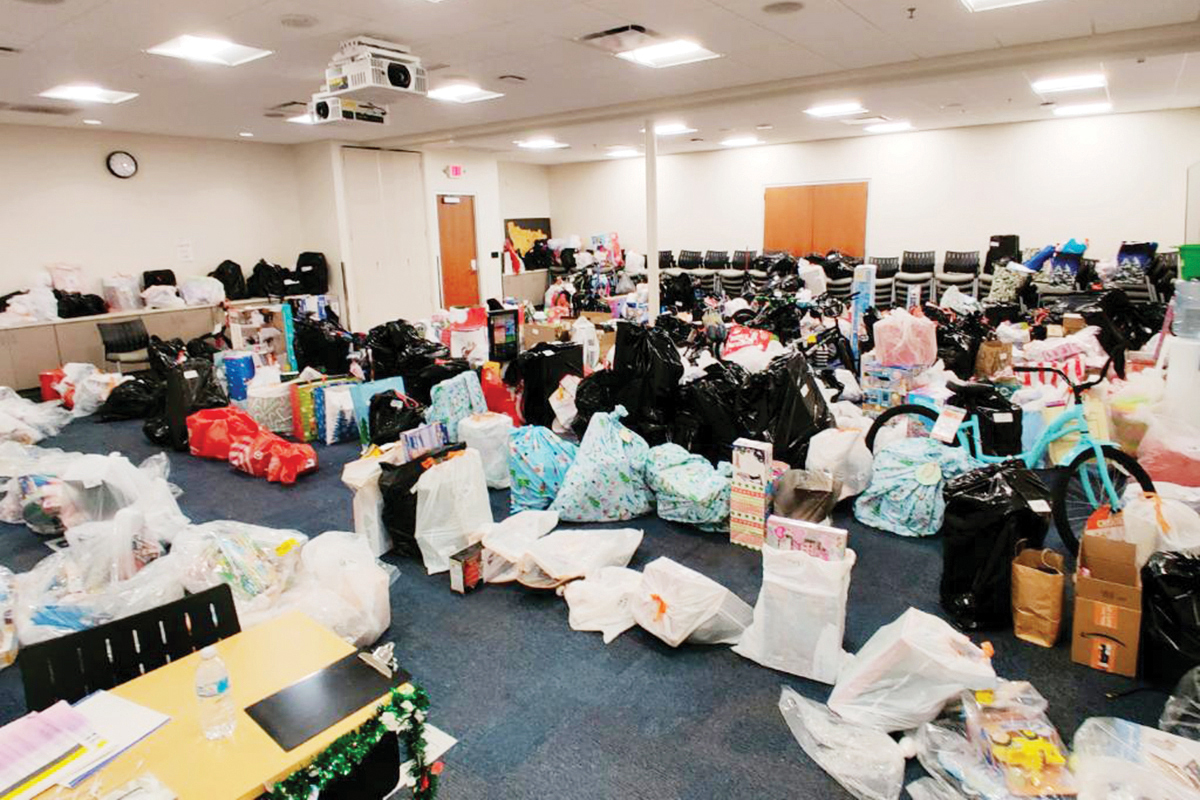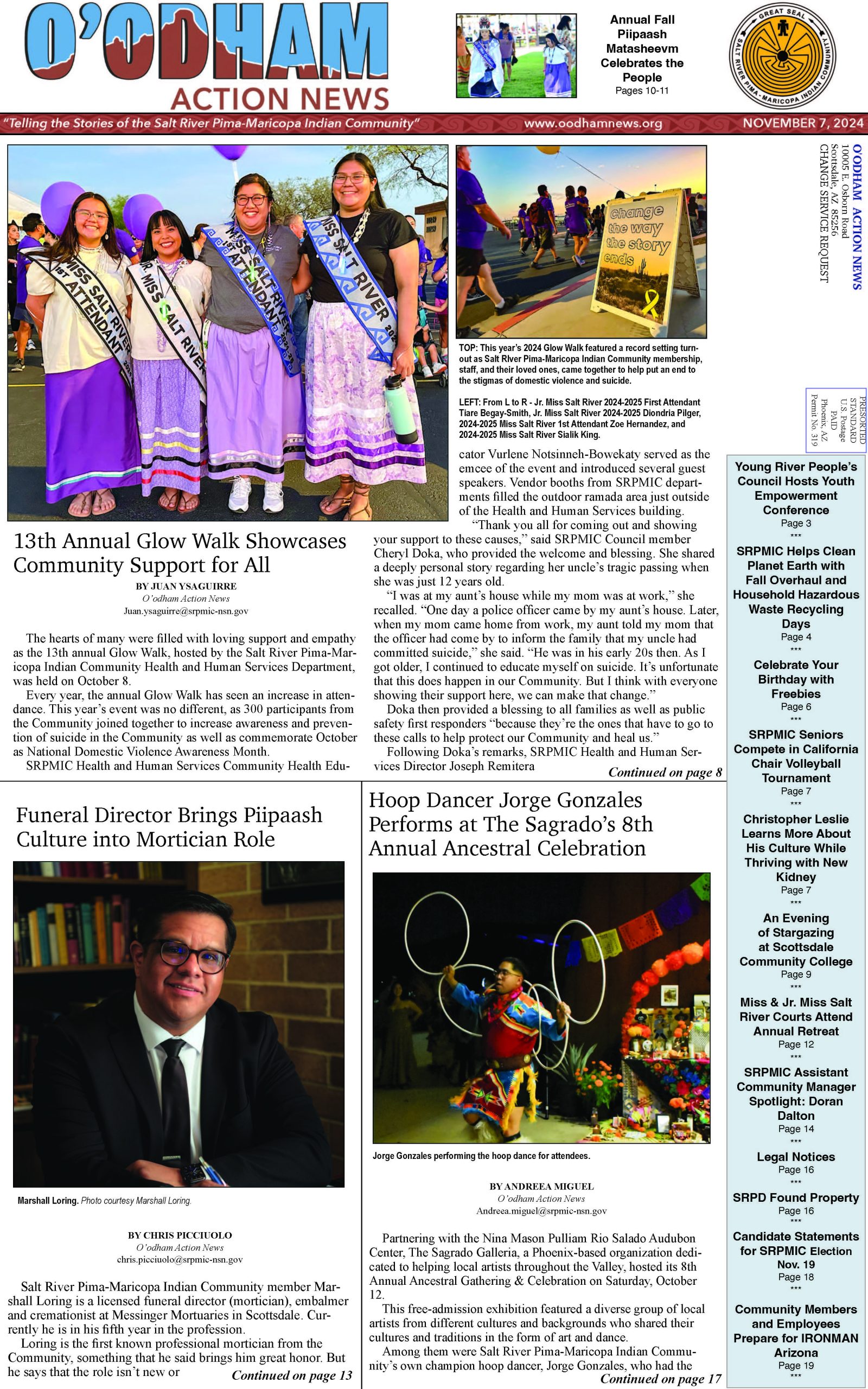VIEWS: 2558
March 15, 2022Brophy College Prep Offers Land Acknowledgment at Prayer Service
On February 28, Brophy College Preparatory, a Jesuit high school in Phoenix, hosted a Native Land Prayer Service on Brophy’s baseball field, for which the school invited several notable O’odham and Piipaash leaders and expressed their land acknowledgment to students and guests.
Brophy said that the service was meant to be not only a land acknowledgment, but also a ceremony marking the beginning of an intentional process of healing, bringing together the Brophy community and local Indigenous communities in the hope of a sustained fellowship moving forward.
On Brophy’s website at www.brophyprep.org, the school has displayed its official land acknowledgment, which the Salt River Pima-Maricopa Indian Community Tribal Historic Preservation Office helped to craft:
We acknowledge that Brophy is built upon the sacred land of the Piipaash (Maricopa) and Akimel O’odham (Pima) people. These tribes are still part of our community today, and we are working with the Salt River and Gila River communities to learn more about the history of the land and how we can collaborate in its care.
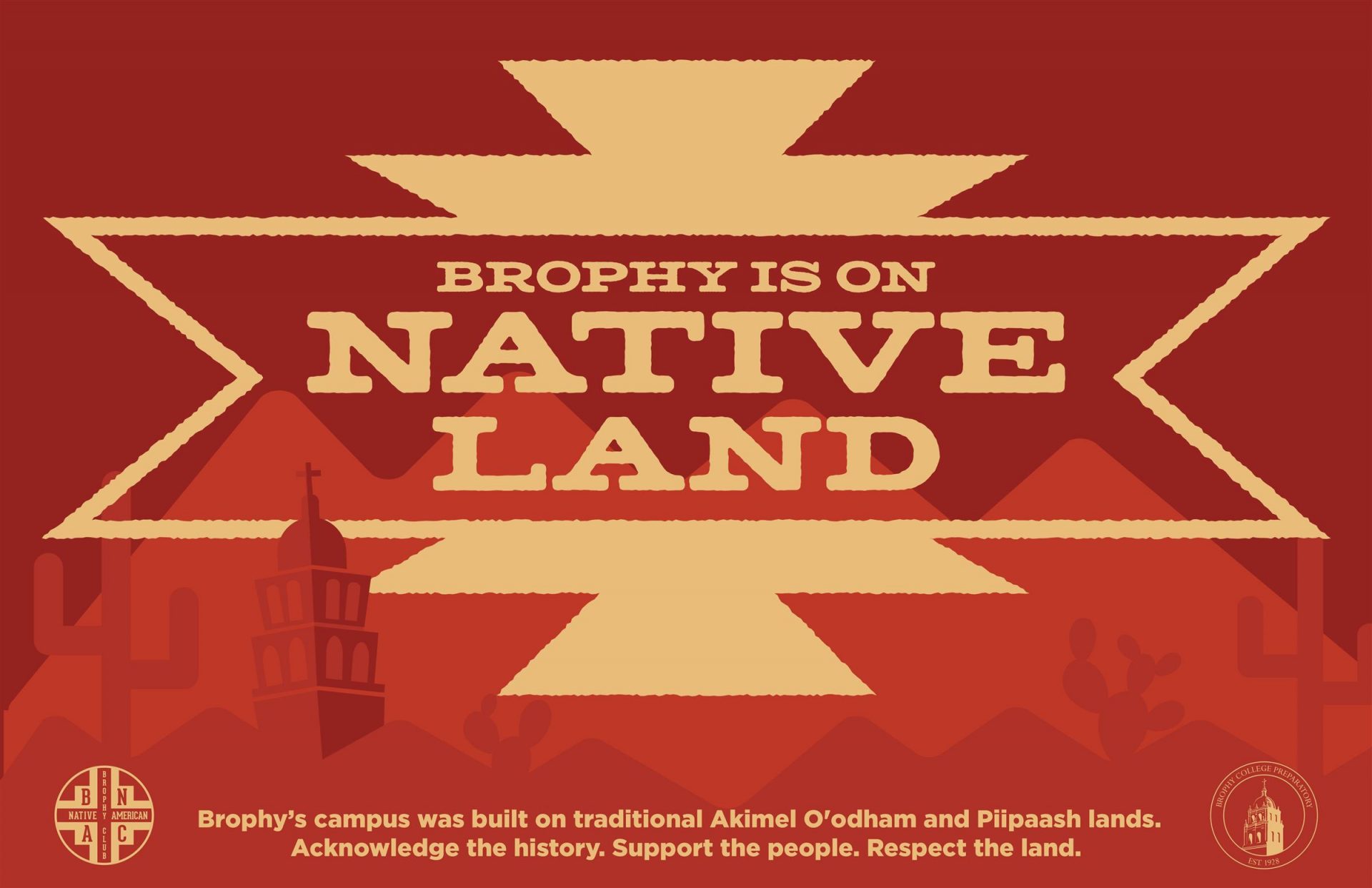
Kathy Mabry, director of communications at Brophy, said that the school first acknowledged the land that the Brophy campus sits on with a Native Lands initiative a couple of years ago.
“In addition to keeping the Native Lands initiative front and center by having it on our website, we will continue to incorporate this acknowledgment into events such as the prayer service, which kicked off our annual Summit on Human Dignity,” said Mabry.
Cooper Davis, head of the Brophy Native Lands advocacy initiative, said that the land acknowledgment is an intersection of the school’s mission-centered goals of anti-racism and environmental stewardship.
“As a Jesuit Catholic school, we are called to live the gospel as an institution, and a key component of that is the concept of reconciliation. By partnering with SRPMIC and GRIC to do this land acknowledgment, we are beginning that process of reconciliation by verbalizing that harm has been done to the original inhabitants of the land our school rests on, and harm continues to be done when we don’t work together as responsible stewards of the land. The Indigenous people of what is [present-day] Phoenix have a deep relationship with the land and water and are uniquely capable of guiding our institution as we seek to be better stewards of our common home.”
Native Land Prayer Service
The prayer service began with a procession during which student Adrian Munguia ’22 sang O’odham songs.
Drew Rau, assistant principal for ministry who organized the ceremony along with the Phoenix Indian Center and Davis, welcomed everyone and formally launched Brophy’s Summit on Human Dignity.
Tribal historic preservation officer Barnaby Lewis of the Gila River Indian Community gave a prayer in O’odham and a blessing for the land, followed by Fr. Stephen Barber, SJ, who offered a prayer for repentance and healing on behalf of the Brophy community and the Society of Jesus.
Brophy principal Bob Ryan then kicked off the formal acknowledgment of the school’s location on Akimel O’odham and Piipaash land.
SRPMIC tribal historic preservation officer Shane Anton was present for the prayer service and land acknowledgment and found the service to be respectful and sincere, and he said that all at Brophy were gracious hosts.
“The acknowledgment provided an account of the negative dealings with the O’odham and Piipaash, how the resources (land and water) were basically stolen, and how the school and church need to do better in recognizing these ‘sacred’ elements and the original people associated with them,” said Anton.
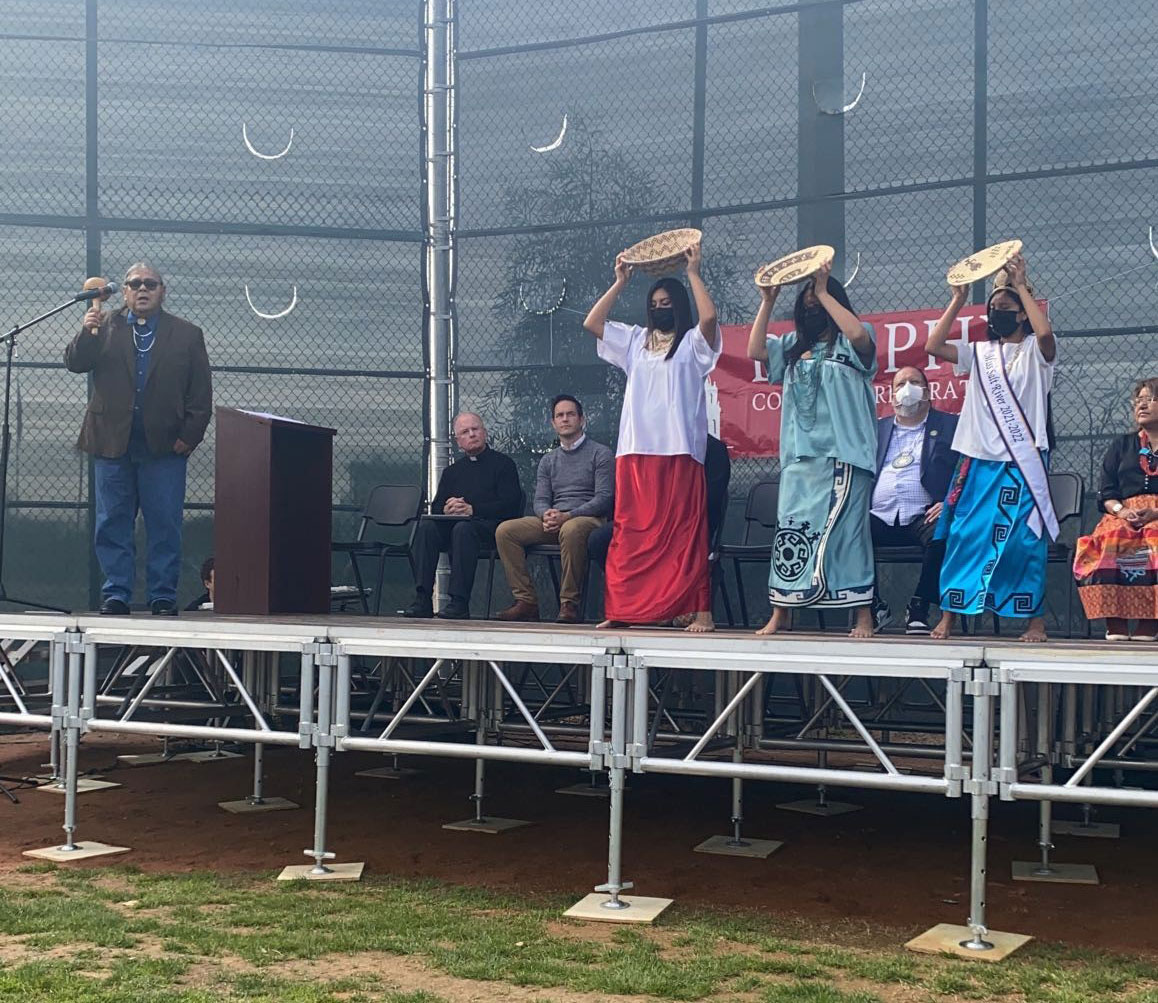
GRIC Governor Stephen R. Lewis was invited to speak. He talked about the importance of the water and prehistoric canals and challenged the students and faculty to stay engaged with Native communities and value and listen to Native people and ideas going forward.
SRPMIC Vice-President Ricardo Leonard spoke next and gave a brief history of the Community and the relationships of the past with Spanish and European settlers to the area. Leonard invited Brophy students and teachers to visit the SRPMIC and GRIC.
Leonard talked to O’odham Action News about what the Brophy land acknowledgment means to the Community.
“[To the Community] it means that entities such as cities, counties, schools and churches are formally recognizing the aboriginal, or tribal, people who were here before any other group. That admission is necessary to ensure the history of Arizona is correct and truthful. It lays the groundwork to now have a meaningful relationship with these entities going forward, and the wounds of ethnic exclusion and theft of resources can begin to heal,” said Leonard.
“We appreciate that the Catholic diocese and Brophy Preparatory are recognizing that this history is important to teach to their young men and have started to include it in their curriculum, as well as reaching out to tribes about the land, water and other socioeconomic issues that have divided races in the past. We appreciate that this week they are addressing “human dignity” and have invited us to share our perspectives.”
Tamara Long, president of the Phoenix Inter-Tribal Kateri Circle, provided a closing prayer, and Leonard and the Salt River Basket Dancers performed three O’odham songs and dances: the basket, woodpecker and going home songs. The Brophy Native American Club on campus has been dedicated to cultural celebration and grassroots advocacy work. In February, club members ran 227 miles from Flagstaff to Oak Flat to pray and stand in solidarity with the San Carlos Apache Tribe in their fight to defend their sacred site from mining interests.

